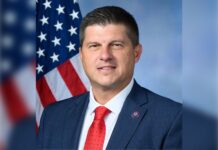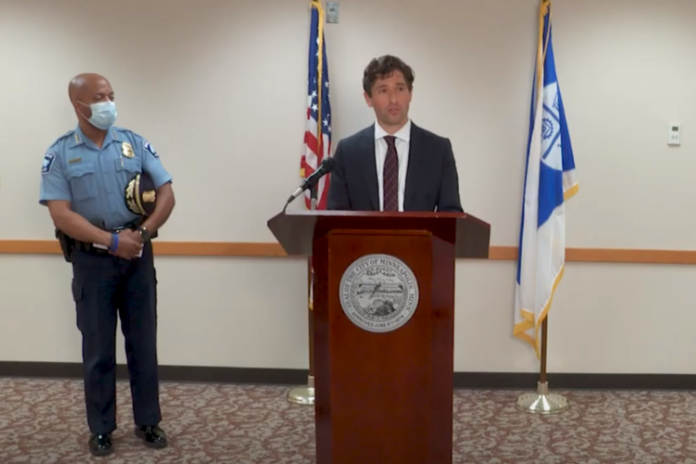Just hours before a fresh wave of rioting hit Minneapolis last week, Mayor Jacob Frey and Police Chief Medaria Arradondo announced an “overhaul” of the police department’s use of force policy.
“No incidents have been more damaging to police-community relations than the excessive or unnecessary use of force against the people who our officers are sworn to protect,” Frey said during a Wednesday press conference.
“Upholding the sanctity of life is not just a part of this policy – it is the foundation of it. These changes represent a fundamental shift within our department and set clearer standards for the community and officers as well,” he continued.
According to a city press release, the new use of force policy requires that officers consider all “reasonable alternatives” before resorting to deadly force and use the lowest level of force needed to safely control a subject.
Officers who resort to deadly force will be required to document how they considered all reasonable alternatives in any post-incident report.
“Our new policy also broadens how the city of Minneapolis defines use of force to include actions such as unholstering or displaying a weapon and clarifies that threatening the use of force is a use of force in and of itself,” Mayor Frey said during the press conference.
The policy differentiates between four types of resistance, including passive resistance, active resistance, aggressive resistance, and aggravated aggressive resistance. Officers will be “held accountable” for using force that is disproportionate to the level of a subject’s resistance.
The new policy, set to take effect September 8, also bans officers from shooting at moving vehicles, with a limited number of exceptions.
Frey said some of the changes were made possible by the recently-passed Minnesota Police Accountability Act, including the restrictions on deadly force.
“The revisions of this policy more closely mirror the values of the MPD under my leadership. The sanctity of life is paramount in any interaction the community has with our department,” said Arradondo. “This is a policy that strengthens our commitment to de-escalation and reportable force which will help keep our officers and the public safe.”











